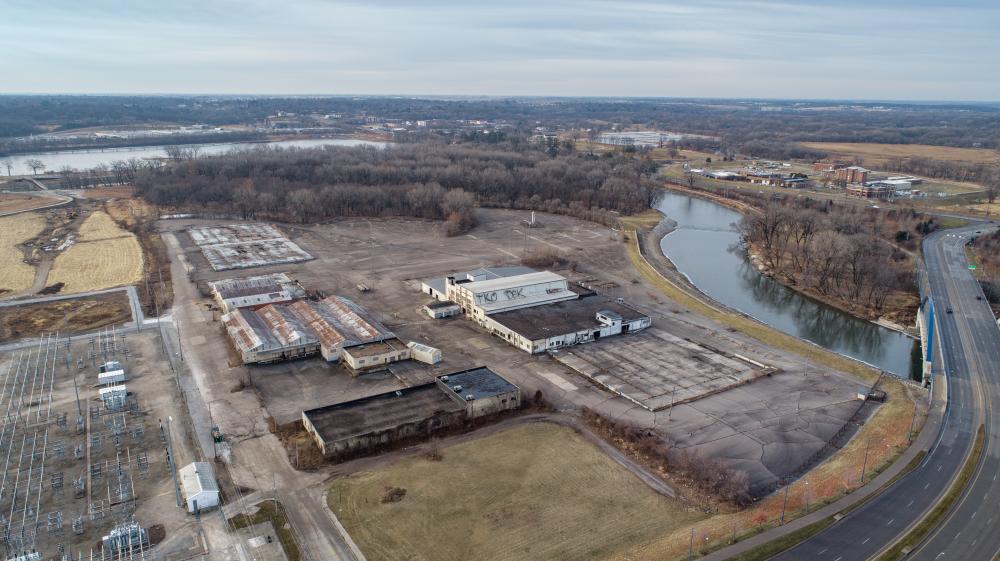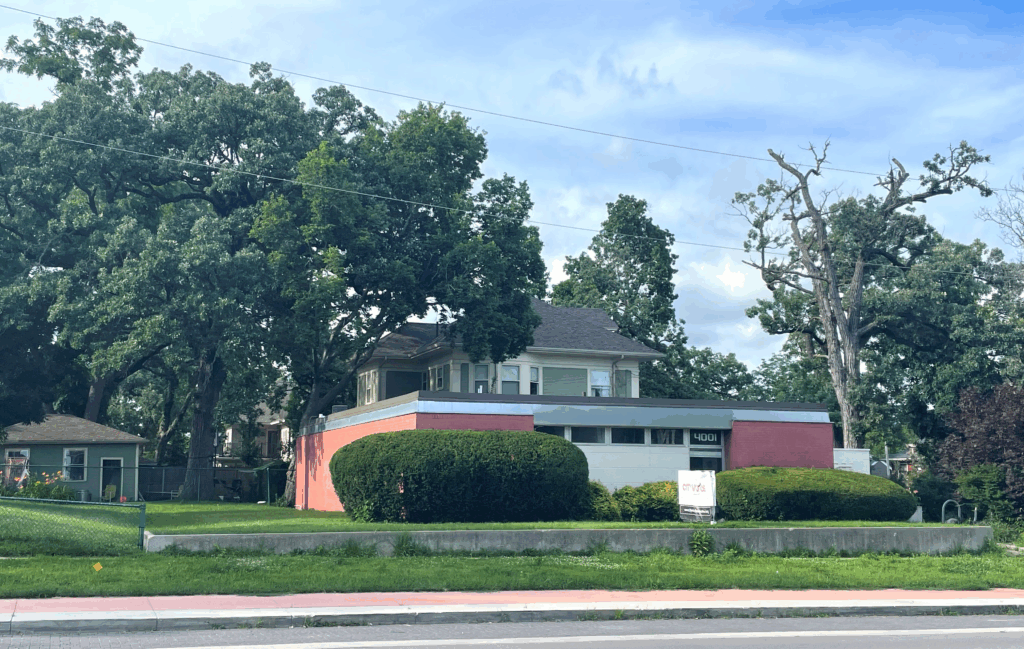D.M. official: Dico site expected to be cleaned up by end of year
But even when cleaned, ‘it will still be a Superfund site’

KATHY A. BOLTEN Apr 30, 2021 | 8:45 pm
3 min read time
827 wordsAll Latest News, Economic Development, EnergyCleanup of the contaminated Dico site at 200 S.W. 16th St. in Des Moines is expected to be completed by the end of the year, a city official said. Photo by Duane Tinkey
Cleanup is expected to be completed by year’s end on a 43-acre toxic site located near a prominent entryway into downtown Des Moines, city officials said during a public meeting today.
In addition, the city of Des Moines will likely take possession of the former Dico site in about 30 days, officials said.
Information about the contaminated site at 200 S.W. 16th St. was shared today with the Iowa Economic Development Authority, which is tasked with deciding what proposed redevelopments will be able to use state tax revenue to fund a portion of the projects.
Authority members are expected to decide in May what projects will receive slices of $100 million available through the Iowa Reinvestment District Act program, which helps finance projects designed to improve quality of life and be a catalyst for tourism. State sales and hotel-motel tax revenue generated in designated reinvestment areas can be used to help pay for project expenses as well as infrastructure.
Included in the six pitches heard by the authority today was one from backers of a plan to redevelop the Dico site into an entertainment area that would include a 6,300-seat multiuse outdoor stadium, a plaza and an eight-story stadium hotel. The stadium would primarily be used for soccer. Other areas connected to the site would also be redeveloped.
Redevelopment plans total $276.6 million, not including proposed office and residential projects. Backers are asking $27.1 million from the state’s reinvestment program.
The former Dico site, which has been unoccupied for more than 25 years because of contamination, “is a large gap that we can no longer ignore,” Matt Anderson, Des Moines’ deputy city manager, told the authority. “It sits in the middle of some of the state’s most popular attractions yet it currently connects none of them.”
To the south and west are Gray’s Lake and Des Moines Water Works Park. To the north is the Pappajohn Sculpture Park. And to the east are Principal Park and the Principal Riverwalk. A redeveloped Dico site would connect all of those outdoor recreation areas and cease to be an embarrassing eyesore to the city, Anderson said.
Pam Cooksey, a Des Moines assistant city manager, said city officials are working with the Environmental Protection Agency on phasing the demolition of the buildings on the Dico site and cleanup of the contaminated ground. The EPA is also responsible for cleaning a pond on the site and replacing the groundwater treatment system.
“We’ve been working for the past couple months on a timeline so that we’re ready to hit the ground running as soon as the property transfers” to the city,” she said.
Cooksey estimated it would take up to five months to complete the cleanup, allowing the site’s redevelopment to start by the end of the year.
But even with new uses on the property, “it will still be a Superfund site,” Cooksey said. “We are cleaning up the site by demo-ing the structures … but the groundwater and the soil, those will still be contaminated.”
The authority today also heard from backers of a proposal to redevelop Merle Hay Mall, located at Merle Hay Road and Douglas Avenue. The proposal includes development of a 3,500-seat multiuse arena and training center in the former Younkers department store site and the current Kohl’s department store building. (Kohl’s is building a new store on the east side of the mall.) The facility would be home to the Des Moines Buccaneers hockey team.
The redeveloped proposal is estimated to cost $128.6 million, and backers are asking for $30 million from the state program.
Elizabeth Holland, CEO of Merle Hay Investors, which owns the mall, said for the project to be successful, it needs all the state revenue being requested. All of the state revenue would be used to redevelop the west side of the mall, she said.
“If our ask was [to redevelop] five buildings but we only got money to accommodate three, visitors to the site in the future would never know the original proposal was for five,” Holland said.
However, Merle Hay is proposing to redevelop three sections of the mall that are connected, she said.
“If we are only able to do the Younkers [redevelopment], it doesn’t change whether or not Kohl’s moves,” Holland said. “Kohl’s is moving. But then what do we do with the vacancy, and how does that dilute the economic impact of what we do with that building?
“Our concern about getting a smaller allocation is what do we do with the pieces we can’t [redevelop]?” she said.
Backers of four other redevelopment projects also presented proposals to the authority. Cities represented include Ames, Cedar Rapids, Fort Dodge and Newton.
Related article: 6 proposed Iowa projects selected to continue vying for state tax revenue











